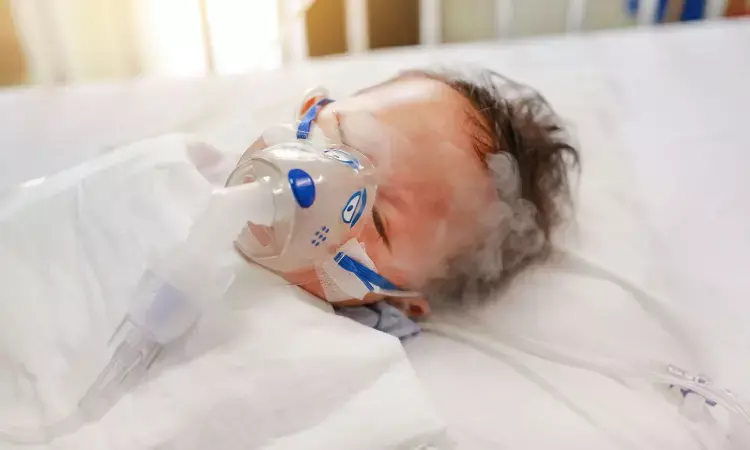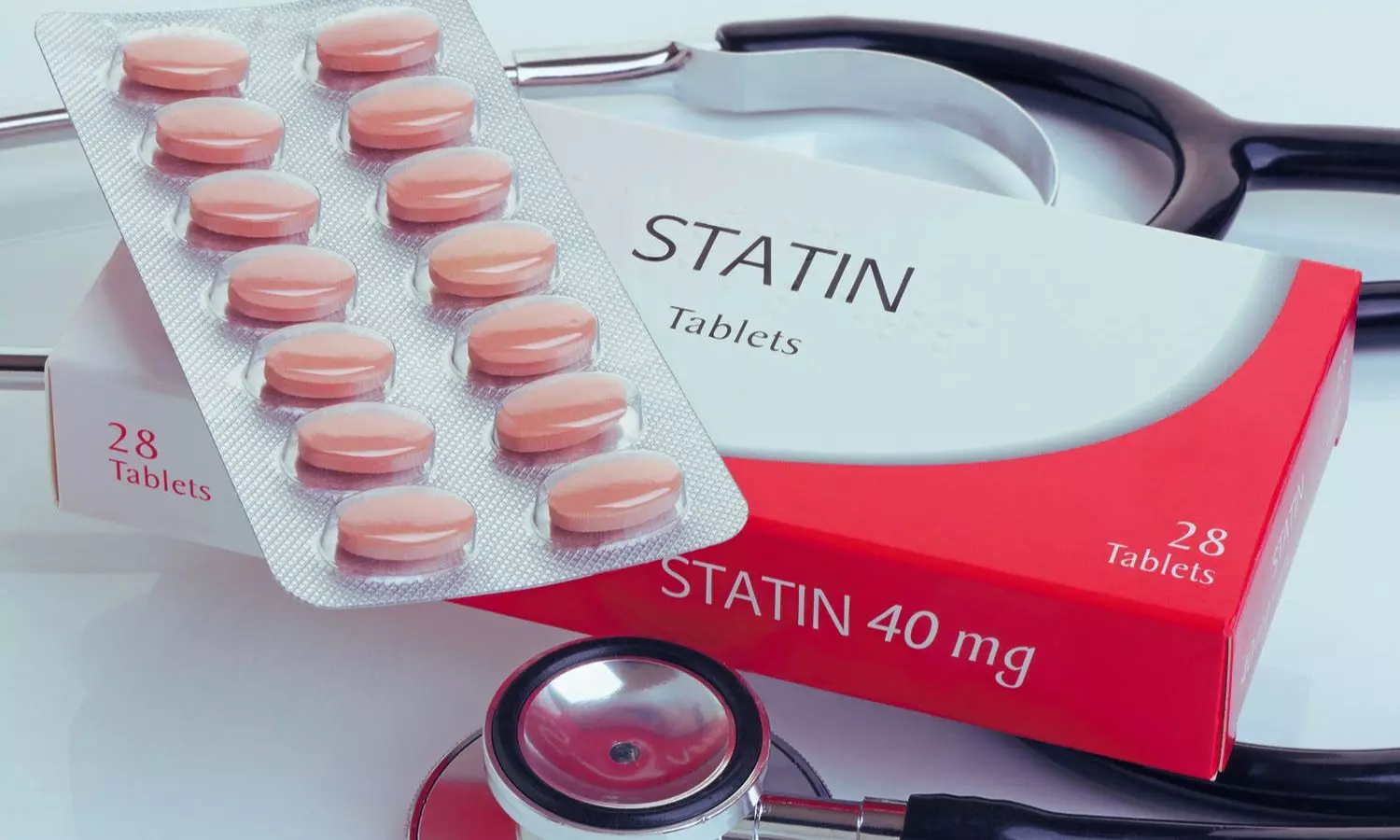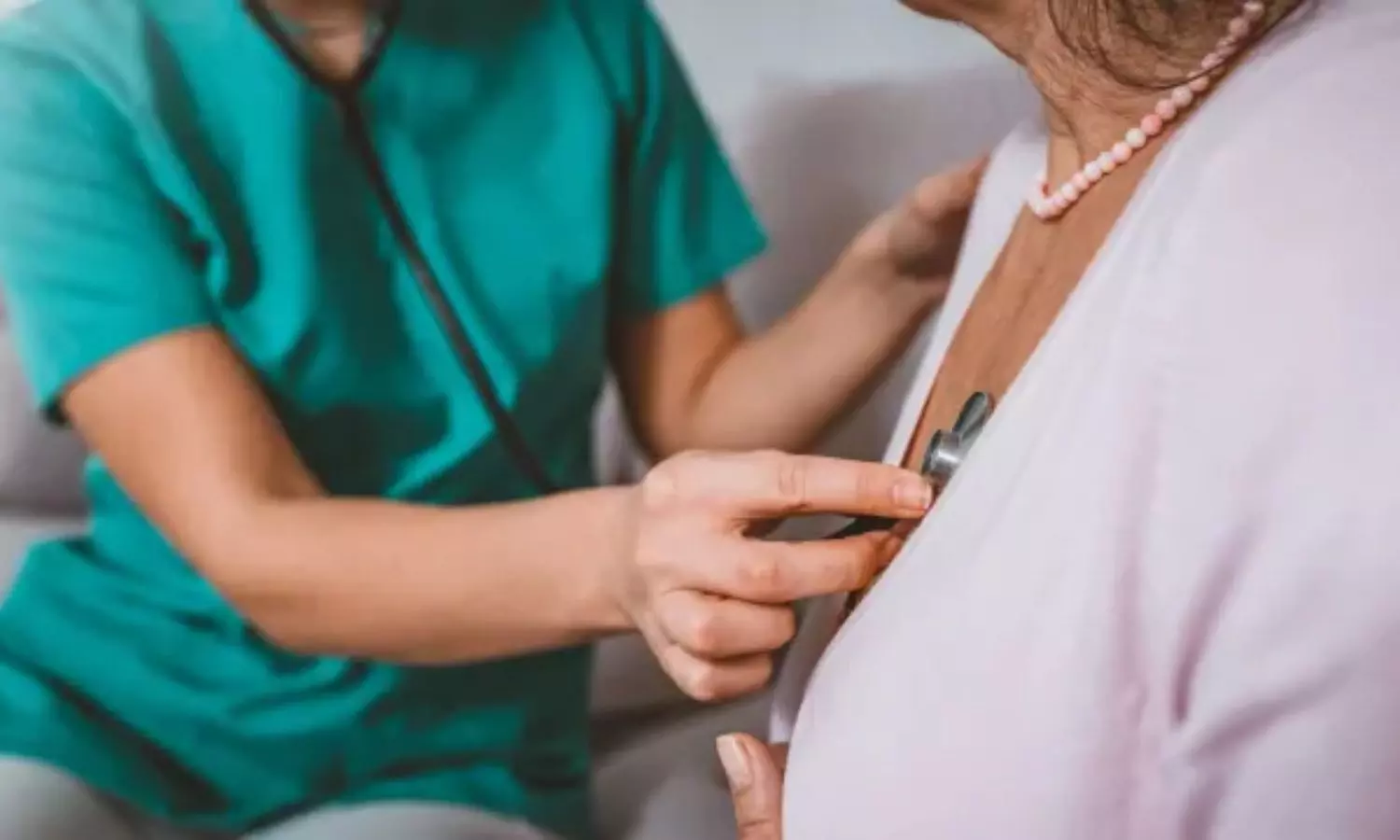- Home
- Medical news & Guidelines
- Anesthesiology
- Cardiology and CTVS
- Critical Care
- Dentistry
- Dermatology
- Diabetes and Endocrinology
- ENT
- Gastroenterology
- Medicine
- Nephrology
- Neurology
- Obstretics-Gynaecology
- Oncology
- Ophthalmology
- Orthopaedics
- Pediatrics-Neonatology
- Psychiatry
- Pulmonology
- Radiology
- Surgery
- Urology
- Laboratory Medicine
- Diet
- Nursing
- Paramedical
- Physiotherapy
- Health news
- Fact Check
- Bone Health Fact Check
- Brain Health Fact Check
- Cancer Related Fact Check
- Child Care Fact Check
- Dental and oral health fact check
- Diabetes and metabolic health fact check
- Diet and Nutrition Fact Check
- Eye and ENT Care Fact Check
- Fitness fact check
- Gut health fact check
- Heart health fact check
- Kidney health fact check
- Medical education fact check
- Men's health fact check
- Respiratory fact check
- Skin and hair care fact check
- Vaccine and Immunization fact check
- Women's health fact check
- AYUSH
- State News
- Andaman and Nicobar Islands
- Andhra Pradesh
- Arunachal Pradesh
- Assam
- Bihar
- Chandigarh
- Chattisgarh
- Dadra and Nagar Haveli
- Daman and Diu
- Delhi
- Goa
- Gujarat
- Haryana
- Himachal Pradesh
- Jammu & Kashmir
- Jharkhand
- Karnataka
- Kerala
- Ladakh
- Lakshadweep
- Madhya Pradesh
- Maharashtra
- Manipur
- Meghalaya
- Mizoram
- Nagaland
- Odisha
- Puducherry
- Punjab
- Rajasthan
- Sikkim
- Tamil Nadu
- Telangana
- Tripura
- Uttar Pradesh
- Uttrakhand
- West Bengal
- Medical Education
- Industry
Nirsevimab found Effective in Preventing RSV-Associated Hospitalizations Among Infants in new research

In a significant development in pediatric healthcare, nirsevimab, a long-acting monoclonal antibody, has demonstrated robust real-world effectiveness in protecting infants against respiratory syncytial virus (RSV)-associated hospitalizations, according to an analysis by the New Vaccine Surveillance Network during the period of October 1, 2023, to February 29, 2024.
The report was published in CDC Morbidity and Mortality Weekly Report.
RSV is a major cause of infant hospitalization in the U.S. Nirsevimab, a long-acting antibody, is recommended by CDC for infants and at-risk children. Clinical trials show high efficacy. This analysis provides the first U.S. estimate of post-introduction nirsevimab effectiveness in infants' first RSV season. The CDC's Advisory Committee on Immunization Practices had earlier recommended nirsevimab for infants under the age of 8 months and for children aged 8–19 months at an increased risk for severe RSV disease. This groundbreaking antibody, known for its extended duration of action, emerged from phase 3 clinical trials with an 81% efficacy against RSV-associated lower respiratory tract infections leading to hospitalization within 150 days after receipt.
In the real-world setting, the New Vaccine Surveillance Network's analysis focused on 699 infants hospitalized with acute respiratory illness during the specified period. Among them, 8% (59 infants) had received nirsevimab at least 7 days before the onset of symptoms.
Findings:
- The findings revealed an impressive 90% effectiveness of nirsevimab against RSV-associated hospitalizations (95% CI = 75%–96%).
- Notably, the median time from receipt to symptom onset was 45 days (IQR = 19–76 days).
- Despite the limited number of infants in the analysis who received nirsevimab and the restricted interval data, the early estimate strongly supports the current recommendation for nirsevimab's use in preventing severe RSV disease in infants.
The data underscore the importance of timely intervention with nirsevimab, either through maternal RSV vaccination or direct administration to infants. It is essential to note that the number of infants in the analysis who received nirsevimab was relatively low, making it impractical to stratify the data by the duration from receipt. However, the analysis acknowledges that nirsevimab effectiveness is anticipated to decline with increasing time after receipt due to antibody decay. Continued monitoring and further research will be crucial to refining recommendations and understanding the long-term efficacy of nirsevimab in preventing RSV-associated hospitalizations.
This breakthrough in pediatric healthcare offers a promising avenue for safeguarding infants against the leading cause of hospitalization in the United States. As the medical community awaits additional data and comprehensive assessments, the current findings affirm the potential of nirsevimab to reshape the landscape of RSV prevention, offering hope for a healthier start in life for countless infants.
Further reading: Moline HL, Tannis A, Toepfer AP, et al. Early Estimate of Nirsevimab Effectiveness for Prevention of Respiratory Syncytial Virus–Associated Hospitalization Among Infants Entering Their First Respiratory Syncytial Virus Season — New Vaccine Surveillance Network, October 2023–February 2024. MMWR Morb Mortal Wkly Rep 2024;73:209–214. DOI: http://dx.doi.org/10.15585/mmwr.mm7309a4
BDS, MDS
Dr.Niharika Harsha B (BDS,MDS) completed her BDS from Govt Dental College, Hyderabad and MDS from Dr.NTR University of health sciences(Now Kaloji Rao University). She has 4 years of private dental practice and worked for 2 years as Consultant Oral Radiologist at a Dental Imaging Centre in Hyderabad. She worked as Research Assistant and scientific writer in the development of Oral Anti cancer screening device with her seniors. She has a deep intriguing wish in writing highly engaging, captivating and informative medical content for a wider audience. She can be contacted at editorial@medicaldialogues.in.
Dr Kamal Kant Kohli-MBBS, DTCD- a chest specialist with more than 30 years of practice and a flair for writing clinical articles, Dr Kamal Kant Kohli joined Medical Dialogues as a Chief Editor of Medical News. Besides writing articles, as an editor, he proofreads and verifies all the medical content published on Medical Dialogues including those coming from journals, studies,medical conferences,guidelines etc. Email: drkohli@medicaldialogues.in. Contact no. 011-43720751




